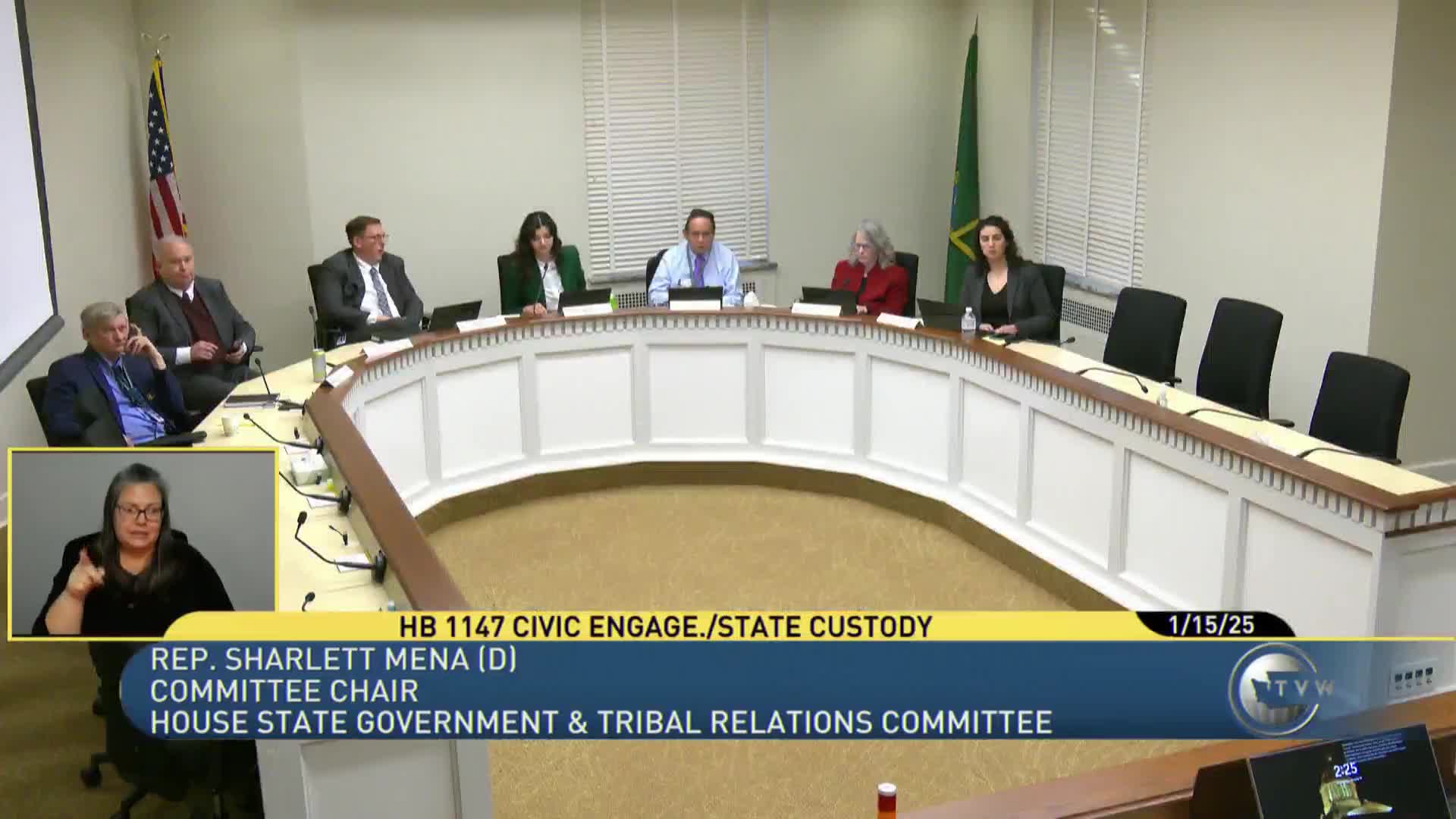Committee weighs implementation, cost and enforcement as sponsor seeks rules to expand ballot access in jails and state hospitals
Get AI-powered insights, summaries, and transcripts
Subscribe
Summary
House Bill 1146 would require county auditors, jails and state hospitals to plan for voter registration and ballot access; sponsors and advocates said the bill fills gaps in access, while counties and some agencies asked for funding and changes to a civil‑enforcement provision that would impose civil penalties for intentional violations
The State Government & Tribal Relations Committee on Jan. 15 considered House Bill 1146, a secretary‑of‑state request bill that would require county auditors to coordinate with jails and state hospitals to produce joint voting plans and ensure that people in custody have access to voter registration, ballots and election information.
Desiree Omley of the Office of Program Research summarized the bill’s requirements: each jail and state hospital must designate a voting coordinator and work with their county auditor on a plan that details registration outreach, how ballots and election information will be distributed (ballots must be accessible at least eight days before a primary or general election) and how audit-level data on registration and ballot return will be collected. County auditors and secretary of state staff would be permitted to enter jails and hospitals for outreach at least 30 days before each election. The bill also directs the secretary of state’s office to contract with the University of Washington Evans School to study election access for these populations and submit a report by June 30, 2026.
Representative Tara Simmons, the bill’s sponsor, said the measure implements and standardizes practices after a 2023 study and a prior bill that restored voting rights in certain circumstances. “Some counties are participating and coordinating and making sure that individuals have access to their rights and other counties are not,” Simmons said; she pitched the bill as a way to ensure consistent, statewide compliance and to help avoid litigation.
Advocates, formerly incarcerated people and groups that do voter outreach in jails supported the bill. Christopher Pulis of the Center for Justice and Human Dignity described how having a ballot while confined changed his sense of connection to community; Abigail Leong of the Washington Voting Justice Coalition said that failing to provide basic supports in jails amounts to “de facto voter suppression.” Anthony Blankenship of Free the Vote Washington noted outreach they did in 39 jails and urged inclusion of youth prisons and the special commitment center.
County and local government representatives asked for help with cost and implementation. Paul Jewell of the Washington State Association of Counties told the committee the policy is sound but warned of “potentially significant costs” for small counties that have minimal elections staff and asked the Legislature to provide resources. James McMahon of the Association of Sheriffs and Police Chiefs asked that a civil‑enforcement provision in the bill be removed; section 7 (as drafted) authorizes the attorney general to bring actions and allows courts to award $25,000 per intentional violation, money that would be used to increase accessibility. McMahon and county representatives said they wanted time to implement new programs before heavier enforcement provisions take effect.
Secretary of State Steve Hobbs said his office supports the bill’s goal and already runs a modest civic‑engagement effort that supplies libraries and outreach materials in institutions; he urged the committee to consider funding the secretary’s staff position that supports the work. Several witnesses said they were open to technical amendments to address patient privacy (for state hospitals), data reporting and the civil‑penalty language. The hearing closed with no vote taken.
Quotes in this article come from witnesses identified in the committee record.
